#albanian goddess
Text
NAKSHATRAS AS GODDESSES
5/27
🌙Mrigashira🦌
DISCLAIMER: This is based solely on my research and the patterns that I saw. I can't promise that I'm gonna be sure in all the coorelations, but I'm going to attribute each nakshatra a goddess that I think fits it the closest. If you're dissapointed, to make up for it, I'm going to list some other deities in the end that I think also fit the nakshatra. Don't come for me if you think I'm wrong, be respectful in the comments if you think so and have fun 🤍
This one is more of a collection of very similar goddesses who are all pretty much well-suited for Mrigashira. I still chose the principal goddess, although it was very hard to focus on only one.
Flidais
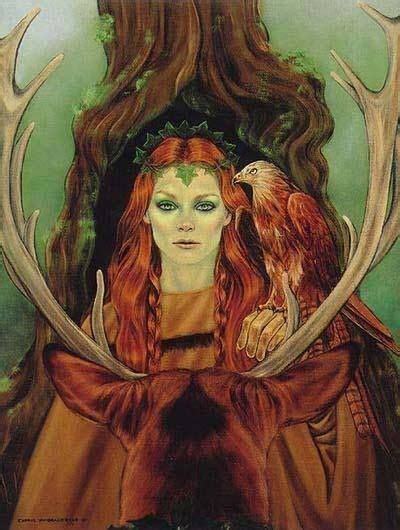
Pantheon: Celtic
Name meaning: soft-haired, fair haired.
Associations: Hunting, woodlands, wild animals, cattle, deer.
Symbols: deer
Flidais is a somewhat obscure Celtic goddess of the hunt. She's similar to more famous goddesses: Artemis and Diana, but unlike them, she's not a virgin and her story is different.
The mythology of Mrigashira is about how the seeming perfection of Rohini (the union of sexes) gets shattered. It's the birth of seduction and pursuit between the sexes, this is the place where Eve eats the forbidden fruit and becomes aware that she's separate from the male, not just something to be placed under his submission, as she was in Rohini. In Hindu mythology, when Rohini realizes that she's desired by Brahma, she turns into a doe and flees. Brahma then turns into a deer and chases her, before his head is cut off by God Rudra (God of the next nakshatra_ Ardra), thus, the deers's head being Mrigashira's symbol.
The story of goddess Flidais goes like this: She's unhappily married to a man she dies not love, feeling stuck and not knowing what to do, until another man appears, with whom she shares a deep love. He gets challenged by Flidais's husband, and he wins. As a reward, he gives deer and cattle to Flidais, for her to have something on her own, placing his faith in her. In one myth, she's said to have transformed into a stag.
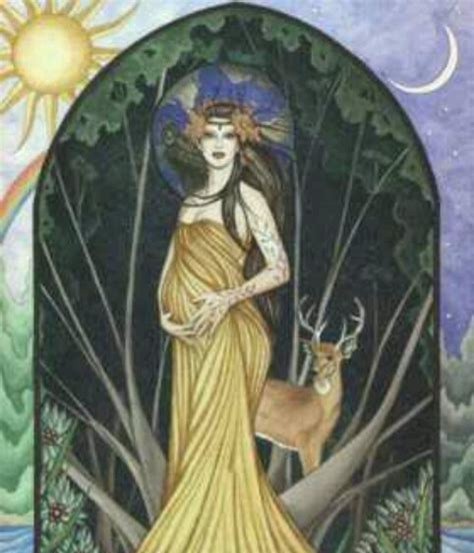
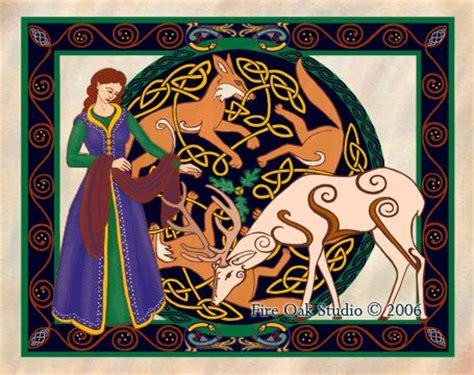
Flidais has a surname, Foltcháin, meaning "beautiful(soft) hair". Mrigashira belongs to a clan of nakshatras called Pulastya (smooth haired).
Besides Flidais, there are other goddesses that can be coorelated to Mrigashira. One of them is Dali- Georgian goddess of the hunt, deer and other horned wild animals. She's said to have beautiful, long golden hair and is the Goddess that governs the rules of the hunt. Either completely nude or dressed only in white, she frequently mated with humans as she wished, just like the female in Mrigashira awakening to her own sexual power. She was said to be unbelievably beautiful, both irresistible and terrible. Dali was harsh with those who violated her rules. She lived in a cavern in a mountain. Parvati, the goddess that was born under this nakshatra, was the goddess of mountains, among other things.
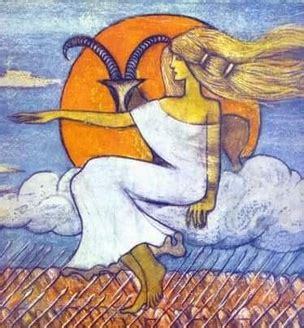
There is also a story about a celtic maiden named Sadhbh, who refused to accept a Druid's advances and because of that, was cursed to be a doe. After three years, the serving man of that druid took pity on her and said that if she were ever to set foot in the dún (castle, fort) of the Fianna of Ireland, the curse would be lifted. Fianna were small bands of warrior-hunters in Ireland during the Iron age and early middle ages. Sadhbh travelled straight to a house that belonged to a Fionn. She was found by him as a doe when he was out hunting. His dogs didn't harm her since they too had been humans before. When they returned to the house, Sadhbh was once again a beautiful girl. They got married.
After Fionn was called to battle against the Vikings, the druid reached Sadhbh and laid the same curse on her, again. Fionn spent several years searching for his wife, but without success. At the end of those seven years he found a wild boy in the forest who said he was raised by a doe. Fionn looked at his face and recognising his wife's features, he realised that he was looking at their son. The boy was Oisín, a famous figure in Irish mythology.
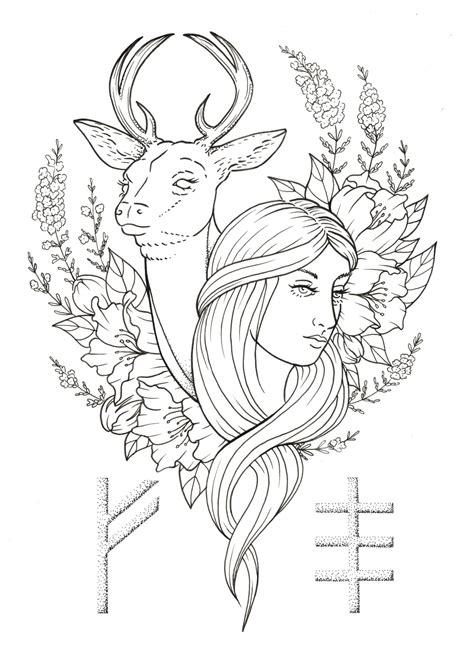
Another interesting deity is the Albanian goddess Zana- goddess of the mountains. Zana were said to be fairies who lived in the mountains and bathed in waterfalls and river streams in nature. They're said to have a very brave character that was known to all. She's a somewhat obscure goddess given her name comes from the name of a creature, but I thought that she was interesting nontheless.
I want to talk about Mrigashira's ruling deity- the moon god Soma. Soma is also known to be the exilir of immortality. Mrigashira's power is to give fulfillment, so to drink Soma, to eat the forbidden fruit, to attain something not everyone has access to is risky, but it's worth the risk. Mrigashira is also associated with quests, adventures and bravery (just like Bharani, the other Venus-Mars ruled nakshatra). The real life natives of Mrigashira are often daring and inquisitive, always craving something else besides what they have.
The moon god being Mrigashira's deity makes me think that Artemis- Greek goddess of the moon, hunting, deer and other wild animals is a great fit for it, but her virginal nature is not in alignment with Mrigashira. If we think of her virginity as simply her being unmarried and independent, then she definitely can be coorelated to Mrigashira. The same goes for Diana- her Roman equivalent.
Some other deities I coorelated to Mrigashira other than Flidais:
Artemis- Greek goddess of hunting, deer, wild animals, the Moon and virgins.
Diana- The Roman equivalent of Artemis.
Dali- Georgian goddess of hunting, deer and other horned wild animals.
Zana- Albanian fairy goddess of the mountains.
Sadhbh- Irish doe-maiden goddess
Cernnunos- Celtic horned god, the god of wild things.
This is it for Mrigashira. I'm very happy I found the Goddesses whose mythologies were so obviously similar to Mrigashira's. As I said, it was hard to choose just one, but I think that I made the right choice, given that Flidais ticked off the most similarities. I'm consistently fascinated by the coorelations between seemingly unrelated cultures and this one was big. It's also my sun, rahu and saturn placement, so no pressure there lol.
Anyways, let me know what you think. Like COMMENT AND REBLOG, please interact with me if you found this interesting. Love you, and take care 🤍🤍🤍
#mrigashira nakshatra#mrigashira#vedic astrology#astrology#nakshatras#astrology observations#goddesses#astro notes#sidereal astrology#celtic paganism#celtic goddesses#georgian goddess#albanian goddess
132 notes
·
View notes
Photo









albanian mythology: prende
prende is the dawn goddess, goddess of love, beauty, fertility, and protector of women.
226 notes
·
View notes
Text
This is my life now 😆
#artatheartist#art#albanian#albanianartist#clay#clayart#albanian mythology#illyrian mythology#mythology#goddess
0 notes
Text
Fantasy names ideas (with meanings!)
By Writerthreads on Instagram
I always have trouble coming up with names for side characters, so hopefully this can help you as much as it helped me! The names in brackets are additional ones that are similar.
Male Fantasy Names
Aldric – (Germanic) old ruler / wise ruler
Caelum – (Latin) sky / heaven
Druvan(/Dhruv) – (Sanskrit) steady / immovable
Fenris – (Norse) named after the mythical wolf Fenrir
Kaelen(/Kaelan) – (Celtic) warrior / mighty
Leofric – (Old English) beloved ruler
Maelor – (Welsh) prince / lord
Rurik – (Slavic) famous ruler
Torin – (Gaelic) chief / thunder
Zarion – (Hebrew) full of sadness
Baldric(/Balrik) – (Old Norse) mighty warrior
Garron – (Irish) strength / protection
Ithran – (Arabic) crowned / majestic
Jorah – (Hebrew) autumn rain / early rain
Oberon – (Germanic / French) noble bear, associated with royalty
Female Fantasy Names
Ariella – (Hebrew) lioness of God
Brienne – (Celtic) noble / strong
Elysande – (French) noble / gracious
Isolde – (Germanic / Celtic) ice ruler / beauty
Lyra – (Latin) derived from the constellation Lyra, lyre
Mirabel – (Latin) wonder
Seraphine – (Hebrew) burning one / angelic being
Taliyah – (Arabic) blooming / rising
Yvaine – (Old French) evening star
Althea – (Greek) healer / wholesome
Calantha – (Greek) beautiful flower
Elira – (Albanian) free spirit / liberated
Selene – (Greek) moon goddess / light of the moon
Eleanor – (Greek / French) shining light
Gender-Neutral Fantasy Names
Aeris – (Latin) air / ethereal
Elynor(/Aenor) – (Greek) light / shining
Lior – (Hebrew) my light
Orin – (Celtic) pale / fair
Rune – (Old Norse) secret / mystery
Selwyn – (Old English) good friend / companion
Vesper – (Latin) evening / evening star
Aenor – (Germanic) strength / honor
Ilan – (Hebrew) tree / oak
Soren – (Scandinavian) stern / severe
Next up, country name ideas?
#writing#writing inspiration#writing tips#writers on tumblr#writing advice#creative writing#teen writer#writers block#writeblr#writers#character names#boy names#baby names#name#names#name suggestions#girl names
458 notes
·
View notes
Photo
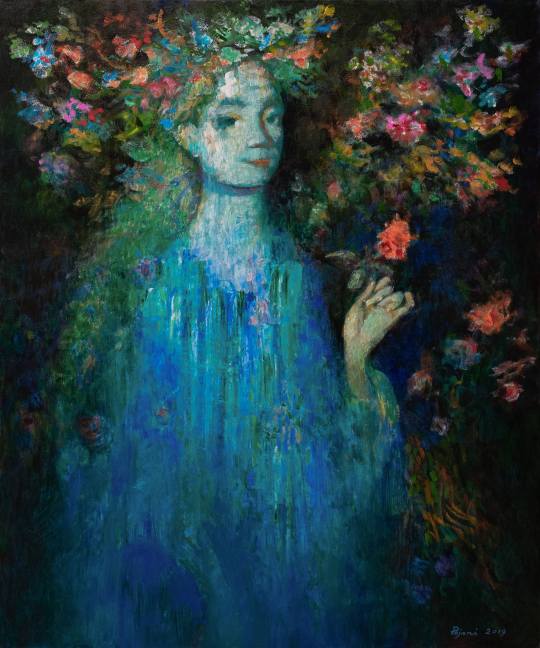
Ilir Pojani (Albanian,b.1954)
Goddess Flora, 2019
Oil on canvas
179 notes
·
View notes
Note
One thing I notice about the Taika hate especially in regard to Rita is the way the haters really idolise Taika's first wife Chelsea Winstanley and put her on a pedistool, according to them, she is this goddess he owes his whole life and career too and he MUST have screwed her over and she must have been the 'victim' in their breakup (people love spreading baseless rumours there is absolutely NO actual evidence for, i find those rumours peoole spread actually really painful to hear about), but Chelsea and Taika support each others work to this day, and make out he abandoned her and his kids when he got big (i saw someone say he hasnt talked to his kids in years which is factually untrue hes always posting with his kids and they were with him for a lot of the pandemic).
I also find the way she is contrasted with Rita jarring, I get the impression they see her as 'classy' while Rita is 'trashy', they literally refer to Rita as his 'girlfriend' rather than his wife when discussing her, implying Chelsea is the only one who is wife material and Rita is just his 'wh*re', I even saw one person saying she is doing so much cool stuff but Taika is only promoting Rita's stuff cos 'men think with their penises' (I HATE THAT PHRASE!) but Taika has promoted Chelsea's work before he had Rita's song link in his bio he had the link to her and his sister Tweedy's Maori translations of the Lion King.
I find that whole thing very 'Madonna-Whore' dichotomy, I also see people go on about how she is 'the mother of his children' in a bid to make him feel guilty for being with Rita, which I feel like shows the idealisation of mothers in society and how they are seen as 'better' than other women (something Jennette Mccurdy mentioned in her book) while we know how demonised stepmothers are, just look at sl many fairytales.
And of course all this is used to make Taika look bad.
Hey Anon! Sorry for the delay! Every time I came to answer you I had crazy stuff at work happen.
Yeah it's really uncomfortable how they just kind of make up rumors about him. He did those "dad" videos for forever and people were saying he wasn't in contact with his kids then too (which is like.. they're on camera with him man, and they were in his show in 2023?). It's a growing problem with people who are "hearing things" on the internet and believing them as truths with little to no research of their own (or going to sources that are entirely biased in their directions so of course they'll get corroborating "evidence").
Thank you for sharing this perspective, especially about the "mother ideal" vs the "whore". I agree, it seems like there's a lot of hate towards Rita for being just a modern woman not wanting to go down the traditional "mother" route. It's crazy that it's 2024 (omg crap is it really 2024) and people are still expecting women to only be birthers. I'm a mom, but I chose to be a mom, I knew that was something I wanted a lot of my life because I love kids and I love language, and learning and seeing that in a kiddo is great! But I know so many women and men who don't want children and that's completely normal! Not every person on this planet has to procreate (and honestly we're overpopulated as it is), and labeling women whores for not wanting to be a mother really is incredibly puritanical.
Unfortunately, I feel like no matter what Taika does... supports Rita doesn't support Rita, supports Chelsea, doesn't support Chelsea, sees his kids too often, sees his kids too little, someone is going to have a problem with him. Multiple anons and mutuals have brought up that it really is pretty damn racist how the people getting the most hate are the brown indigenous man, and his Albanian wife. It's incredibly frustrating, especially considering how much he does for indigenous films, shows, and people in general.
Ps: Regarding "men think with their penises" that doesn't even make sense like... are you NOT supposed to support the women in your life? Like what does the penis even have to do with anything in this case?
I will make the note in case you werent already aware I am a white woman so I don't want to speak to black or indigenous experience when they can do it better-- but I would like to share a work by a Black Writer I follow on IG.
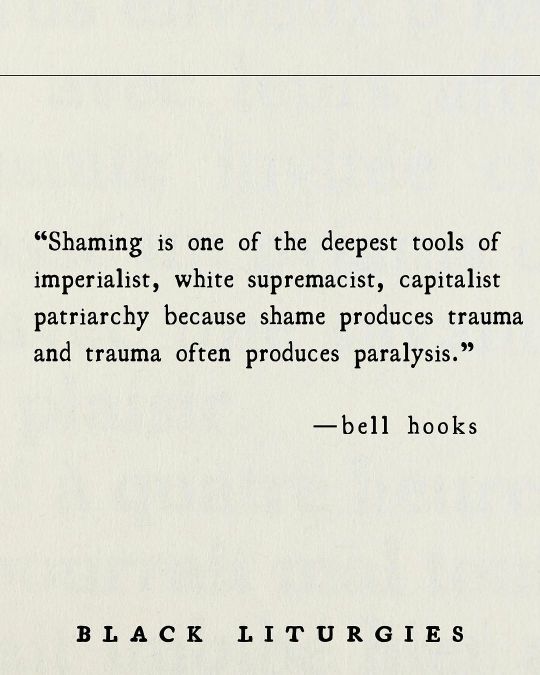
SRC: blackliturgies
I feel like this is INCREDIBLY apt when it comes to the situation of Taika (and honestly women in general who don't go down the mother path). Whether people realise it's a part of systemic racism (and sexism) or not, so many people have been programmed to shame others if they don't follow the "norm". It's why it's so important for everyone to keep fighting back whenever that shame becomes public.
Anyway, sorry, your talking points are really important and they got me rambling! I appreciate you bringing them up. If you wanna talk more about them feel free to DM me!
Thanks for writing in anon, I hope you have a good day and stay safe and warm out there! <3
26 notes
·
View notes
Text

Happy First Day of Spring!
Depiction of Prende, Ancient Illyrian Goddess of love, dawn, beauty, fertility. Also known as Afërdita (literally "Afër-Near, Dita-Day" aka Dawn), or the personification of the planet Venus.
She is considered the Albanian equivalent of the Roman Venus, Norse Freyja and Greek Aphrodite.
Although her official festival was celebrated on July 26 , I decided to depict her today because of the significance of her name.
Black and white version coming up after this, alongside some information on how the most important (and official) pagan holiday is celebrated here.
#art#illustration#painting#drawing#digital art#sketch#portrait#digital#fantasy#ostara#freyja#aphrodite#spring
20 notes
·
View notes
Text
What's in a Name — Miraculous Ladybug
5. KWAMI
5.1. Yin-Yang Tier
Tikki: according to Thomas Astruc, it's supposed to mean "happiness" in a language he can't remember. After doing some research, I believe he was going for the Greek word "eftychia". Interestingly enough, this word had the meaning of "good luck" in Ancient Greek, and is ultimately derived from the Ancient Greek word "tyche", meaning "luck, fortune", which was also the name of the Greek goddess of luck, equivalent to the Roman goddess Fortuna.
Plagg: from English "plague".
5.2. Top Tier
Trixx: from English "tricks".
Wayzz: either from English "wise" or "ways".
Pollen: self-explainatory.
Nooroo: either from the Japanese pronunciation of English "null", as this was his name in previous drafts, or from an Arabic word meaning "light". That, or "neuro-".
Duusu: either from French "douce" ("sweet", F), Luxembourgish "duuss" ("gentle, tender, soft") or various Slavic words for "soul", like Polish "dusza" or Czech "duše".
5.3. Zodiac Tier
Mullo: from French "mulot", meaning "field mouse". It was initially supposed to be Toppo, from the Italian word for mouse ("topo"), but this was changed during development. This latter name did, however, still end up being used once in the English dub of Kwamibuster.
Stompp: self-explainatory.
Roarr: self-explainatory.
Longg: from Mandarin "long", meaning "dragon".
Sass: most likely from the hissing sound a snake makes.
Kaalki: in reference to Kalki, the tenth avatar of the god Vishnu, which is depicted as a white horse.
Ziggy: most likely from German "Zeige", meaning "goat". Is also a reference to Ziggy Stardust.
Xuppu: in reference to Xu Sheng, a character from "Journey to the West" who initially rejects the existence of Sun Wukong before becoming a devotee of his in the story "The Great Sage, Heaven's Equal" by Pu Songling. The name is a blending of the character's name and the author's.
Barkk: self-explainatory.
Orikko: from "cocorico", which is the French word for the sound a rooster makes.
Daizzi: in reference to the pig character Zhu Baije from "Journey to the West", who is often called "Dai Zi", meaning "idiot".
5.4. Others
Liiri: from Albanian "liri", meaning "freedom".
#the ml wiki lists the language tikki's name is derived from#as hindi#this is incorrect#the hindi word for happiness is 'khushi'#next up: other - s1#series: what's in a name?#what's in a name: miraculous ladybug#miraculous ladybug#kwami#tikki#plagg#wayzz#nooroo#duusu
21 notes
·
View notes
Text
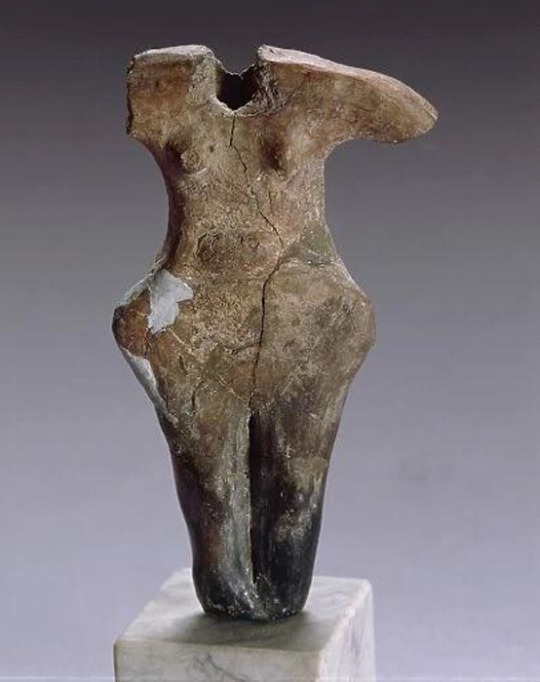
Dheut-e-Zonja, or Zôja-e-Dheut ("Lady of the Earth"), was the Illyrian/Albanian Earthmother of the ancient Balkans, also called Dheun, Dheu, and Toka ("Earth"), and Mëmë-dheu ("Mother Earth"). The Romans identified her with Tellus Mater, Terra Mater, or Magna Mater (Cybele).
The very soil of Dheut-e-Zonja was believed to have the powers of an all-seeing eye that watched humanity from the ground up, knowing everywhere each of us goes. When an Albanian moved to a foreign land, he or she took with them a container of Mother Earth, as the concept of the Earthmother was regionalized.
She was Mother of the Sun-goddess, rebirthing Her every morning. She cared for the dead, their remains buried and their soul going to an underworld paradise. Mourners would get on their knees making forlorn wailing sounds, then place their foreheads on Mother Earth.
She was sometimes paired with Zoh-z, the Albanian Sky-god, with many formulaic sayings or prayers to Earth and Sky. Presumedly he was her husband.
Dheut-e-Zonja was mother of vegetation. Her sacred groves were designated natural sites of great beauty, where it was forbidden to cut down trees, and no house or settlement was permitted, or the offenders' families would suffer longlasting misfortune.
An Albanian and Kosovan folk practice that lasted into the 20th Century provides lingering evidence of an Earthmother cult. Infants and children who were not thriving would be taken to a ritual location by an elderly woman of the family or village, there laid upon the ground, and covered with fresh earth, all except the head, the while reciting prayers or spells of healing. This was believed to impart the Earth's strength to the child.
Figurine: Copper Age ceramic goddess figurine found at Maliqi, Albania.
#Goddess#Copper Age#ceramic#Goddess figurine#Maliqi#Albania#Dheut-e-Zonja#mother of vegetation#sacred groves#folkways#Kosova#Earthmother cult#rituals#sacred ways#ancient ways#Ancestors Alive!#What is Remembered Lives#Sun-Goddess#Zôja-e-Dheut#Lady of the Earth#Balkans
30 notes
·
View notes
Text

Rainbow Spirits
Through many cultures the rainbow is something magical and sacred. These are some of the deities and spirits associated with the rainbow
Manzat: Mesopotamian and Elamite Goddess who was the personification of the rainbow
Iris: Greek Goddess who personifies the rainbow, or in other myths, the rainbow is the path she travels as the delivers messages from the Gods to the human realm
Rainbow Serpent: Aboriginal Australian Creator god who also controlled the rain
Hong: Chinese two-headed Dragon who represents the rainbow
Ix Chel: Mesoamerican Goddess of rain, birth, and healing. Chel means rainbow.
Anuenue: Hawaiian messenger Goddess to her brothers, Tane and Kanaloa. She is the Rainbow Maiden.
Oxumare: Yoruba Orisha who is the personification of the rainbow.
Ayida-Weddo: Haitian Vodou Loa who is the personification of the rainbow
Dan: West African Vodun spirit who is represented as a rainbow serpent. Dan is the androgynous son of Mawu, the Divine Creator, and acts as a mediator between the spirits and the living.
Uenuku and Kahukura: Māori atua's and prominent ancestors, both of which are personifications of the rainbow, and usually represent omens.
Cuchavira: Meaning "shining air", she is the personification of the rainbow and protectress of working women and the ill for the Muisca, the indigenous people of the highlands in the Andes.
Amitolane: Rainbow spirit from the mythology of the Zuni, a Native American tribe.
Prende: Albanian Goddess of the dawn, love, beauty, fertility and health. Her belt was said to be the rainbow.
Indra: Hindu God who is the King of the devas and Svarga. He is a God of the sky, lightning, weather, thunder, storm, rain, and war. In Sanskit the rainbow is called the "indradhanus" or the Bow of Indra.
Rama: Hindu hero-king who was the seventh avatar of the God Vishny in the Vaisnava tradition. A Bengali word for rainbow is "rongdhonu", meaning Rama's Bow
Rainbow Prince: French fairytale prince who can only speak when there is a rainbow
Christian God: After the devastating flood that killed all life except for fish and the animals and people on Noah's Ark, God made a promise to never again destroy all life in this way. He gave Earth the rainbow as a symbol of this covenant.
Leprechaun: being from Irish myth that is sometimes classed as one of the Aos Sí. The leprechaun was thought to guard the pot of gold at the end of the rainbow.
Unicorn: A new link between the mythical unicorn and rainbows has been forged, where these have become almost inseparable. It is unsure where this first started. Unicorns symbolize purity, blessing, healing, and freedom.
[Part of a Rainbowmancy series, masterpost here]
#rainbowmancy#rainbow magic#rainbow witch#deity#rainbow#magic#spirits#unicorn magic#witch#witchcraft#witchblr#paganblr#symbolism#mine#personal
14 notes
·
View notes
Text
Dreamt of the crying goddess
Black hair, dark eyes, tanned skin
Balkan, Albanian
She wore a traditional dress
With lots of ornaments
Black make-up drooped
As daggers down her eyes
With two pale lines
Where the tears kept flowing
There was a fight coming
A demon circled me motion blurred
Ready to stop-scare any moment
First time she did, I saw just a girl
But the atmosphere was far too threatening
For her to remain like this
I thought it strange the demon circled me
I thought I had a fighter
But maybe I was the fighter
Contemplations caused perspective shifts
Bird's-eye said maybe I was merely looking
At me, a show's main character
Things got jumbled like that
The demon kept swift circling, threatening
But then my mom said she had
Already seen this episode
And that it ended well
Albeit 'just'
So, I woke up
#dream#dream diary#always with the weird symbolism#i'll spend all day interpreting this#maybe draw those dagger eyes#fun stuff
46 notes
·
View notes
Text
Shamura’s Name Theory
Short version if you don’t have time to read the whole thing:
Shamura is a name of Assyrian origin meaning diamond. That said, it can also be understood as a toponymic name meaning “silk village” in Japanese.
And for you, my friend who decided to proceed, I present to you the long version.
So we know from the COTL wiki that Leshy is named after a Slavic forest deity, Heket is an alternative spelling of Heqet, Egyptian frog goddess of fertility, Narinder (Sikh variation of the Hindu name Narendra which is linked to the three-eyed god Indra) means “lord of men”, and Kallamar means “squid” in Albanian. There’s no info regarding Shamura’s name, but a Reddit user has pointed out that it is a name of Assyrian origin, meaning “diamond”.
That said, search results for the name Shamura also has a fair amount of unrelated Japanese content, but why? I dug around the Wikitionary for a bit and found out that mura is the romanized spelling of the Japanese word 村, meaning village, which is used in common surnames such as Nakamura (middle village) and Kimura (tree village).
And what about sha? Turns out it is one of the possible readings of the Japanese word 紗, meaning silk gauze, or gossamer–fine spider silk.
Have fun with this random piece of info!
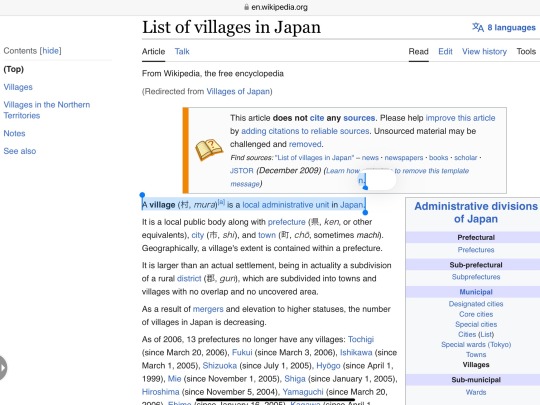

19 notes
·
View notes
Text
Prende
Prende or Premte is the goddess of dawn, love, beauty, fertility, health and protector of women, in the Albanian pagan mythology. She is also called Afër-dita, an Albanian phrase meaning "near day", "the day is near", or "dawn", in association with the cult of the planet Venus, the morning and evening star. Her sacred day is Friday, named in Albanian after her: e premte, premtja (Gheg Albanian: e prende, prendja). In Albanian mythology Prende appears as the daughter of Zojz, the Albanian sky and lighning god.
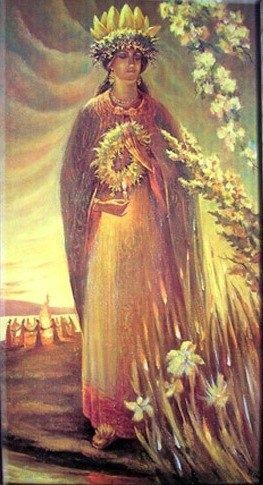
Thought to have been worshiped by the Illyrians in antiquity, Prende is identified with the cult of Venus and she was worshipped in northern Albania, especially by the Albanian women, until recent times. Originally a pre-Christian deity, she was called "Saint Veneranda" (ShënePremte or Shën Prende), identified by the Catholic Church as Saint Anne, mother of Virgin Mary. She was so popular in Albania that over one in eight of the Catholic churches existing in the late 16th and the early 17th centuries were named after her. Many other historical Catholic and Orthodox churches were dedicated to her in the 18th and 19th centuries.
Dialectal variants include: Gheg Albanian P(ë)rende (def. P(ë)renda), Pren(n)e (def. Pren(n)a); Tosk Albanian: Premte (def. Premtja), Preme (def. Prema).
Prende is also called Afërdita (Afêrdita in Gheg Albanian) in association with the cult of the planet Venus, the morning and evening star, which in Albanian is referred to as (h)ylli i dritës, Afërdita "the Star of Light, Afërdita" (i.e. Venus, the morning star) and (h)ylli i mbrëmjes, Afërdita (i.e. Venus, the evening star). Afër-dita, an Albanian phrase meaning "near day", "the day is near", or "dawn", is the native Albanian name of the planet Venus. Afro-dita is its Albanian imperative form meaning "come forth the day/dawn".
The Albanian translation of "evening" is also rendered as πρέμε premë in the Albanian-Greek dictionary of Marko Boçari.
In northern Albania, Prende is referred to as Zoja Prenne or Zoja e Bukuris "Goddess/Lady Prenne" or "Goddess/Lady of Beauty".
The Albanian name Premtë or P(ë)rende is thought to correspond regularly to the Ancient Greek counterpart Περσεφάττα (Persephatta), a variant of Περσεφόνη (Persephone). The theonyms have been traced back to the Indo-European *pers-é-bʰ(h₂)n̥t-ih₂ ("she who brings the light through").
The Albanian phrase afro dita 'come forth the day/dawn' traces back to Proto-Albanian *apro dītā 'come forth brightness of the day/dawn', from Indo-European *h₂epero déh₂itis. The theonym Aprodita is attested in Messapic inscriptions in Apulia.
In the Albanian pagan mythology Prende is the goddess of dawn, love, beauty, fertility and health. She is considered the Albanian equivalent of the Roman Venus, Norse Freyja and Greek Aphrodite.
According to some Albanian traditions, Prende is the daughter of Zojz, the Albanian sky and lightning god. Associated with the dawn goddess, the epithet "daughter of the sky-god" is commonly found in Indo-European traditions.
According to folk beliefs, swallows, called Pulat e Zojës "the Lady's Birds", pull Prende across the sky in her chariot. Swallows are connected to the chariot by the rainbow (Ylberi), which the people also call Brezi or Shoka e Zojës "the Lady's Belt".
The common Albanian name nepërkë for the venomous snake adder, viper appears in the Arbëresh variety of Calabria as nepromtja, probably based on Prende / Premte.
8 notes
·
View notes
Photo

Ilir Pojani (Albanian,b.1954)
Goddess Flora, 2019
oil on canvas
123 notes
·
View notes
Text

Zana, Albanian mythological divine beings dancing under the moonlight. They are thought to be beautiful young women, with supernatural powers, goddesses of the mountains, protectors of nature. They are usually found in groups of three, but sometimes they can be found alone. They are so holy in the ancient Albanian mythology that Albanians still do not dare mention their full name, saying it is a blasphemy to call upon their divine being. Instead they can me called "Shtojzovalle" (Shtoj-increase, Zot- Albanian God, Vallet- Dance; "Zot, make them dance more") "Shojzorreshta" (Zot, increase their numbers), "Brides of the Mountain" , "The White Ones" , "The Kind Ones" etc.
In some cases, they are also seen as fierce warriors, similar to the Amazons. They are the counterpart to the Green Man, or the Divine Feminine.
Part of my personal project on Ancient Albanian Mythology.
-------
COMMISSIONS OPEN:
Commission Guide -Eni S
Commission Form:
COMMISSION REQUEST FORM (google.com)
#art#illustration#painting#drawing#digital art#sketch#portrait#digital#fantasy#dark#mythology#paganism#pagan#albanian#albanian mythology#zana#illyrian#illyria#divine feminine#green man#pagan witch#witch
9 notes
·
View notes
Note
Recently I remembered that you once found Narinder name meaning and that was interesting, so I decided to look for other bishops names meanings. Here's what I found:
• Leshy.
Or Leshi. It's basically a name of Slavic guardian-spirit of the forest. It has no special name meaning, partly because it's formed from the word forest, which is "les" in some Slavic languages.
• Heket.
Or Heqet, or Heqtit. It's a name of is an Egyptian goddess of fertility, who actually was represented in the form of a frog. To the Egyptians, the frog was an ancient symbol of fertility, related to the annual flooding of the Nile. The meaning of her name is not found, but possibly it was formed from "heqa", which means ruler or sceptre.
• Kallamar.
This is the weirdest one, because is's quite similar to translations of squid to some other languages: kalamar (in Albanian), calamar (in French) and calamaro (in Italian). So it is as if Narinder was named Chat, which is cat in French or sort of. His name has no meaning, it's just squid. Lol I just thought that it's sorta similar to the way we call Lambert.
• Shamura.
This one is the most interesting, because their name don't belong to any spirit or god and it's not just a translation. This is Arabic/Assyrian gender neutral name.
Unfortunately there's no much information about it, but there were some "user submitted" meanings and I think some of them are worthy. I also found meanings of names similar to Shamura, which are Shamurah and Shamara (both are girls names btw). There are the meanings:
Shamura – diamond; spider damn they know something.
Shamurah – a learner, pure soul, brave and strong; strong, unique and independent (woman).
Shamara – battle ready warrior; fierce warrior; warrior.
That's it I guess. Well, almost it, I have a question. Were Shamura the one who named their siblings? Because if so they're quite original. xD
Oh, and does Lambert have some other name, or is he just Lambert? I never actually thought of that before.
Yeah, I knew all of this. Except for the meaning behind Shamura. They definitely knew something :">
No, they didn't name them.
Yes, he's just Lambert
59 notes
·
View notes